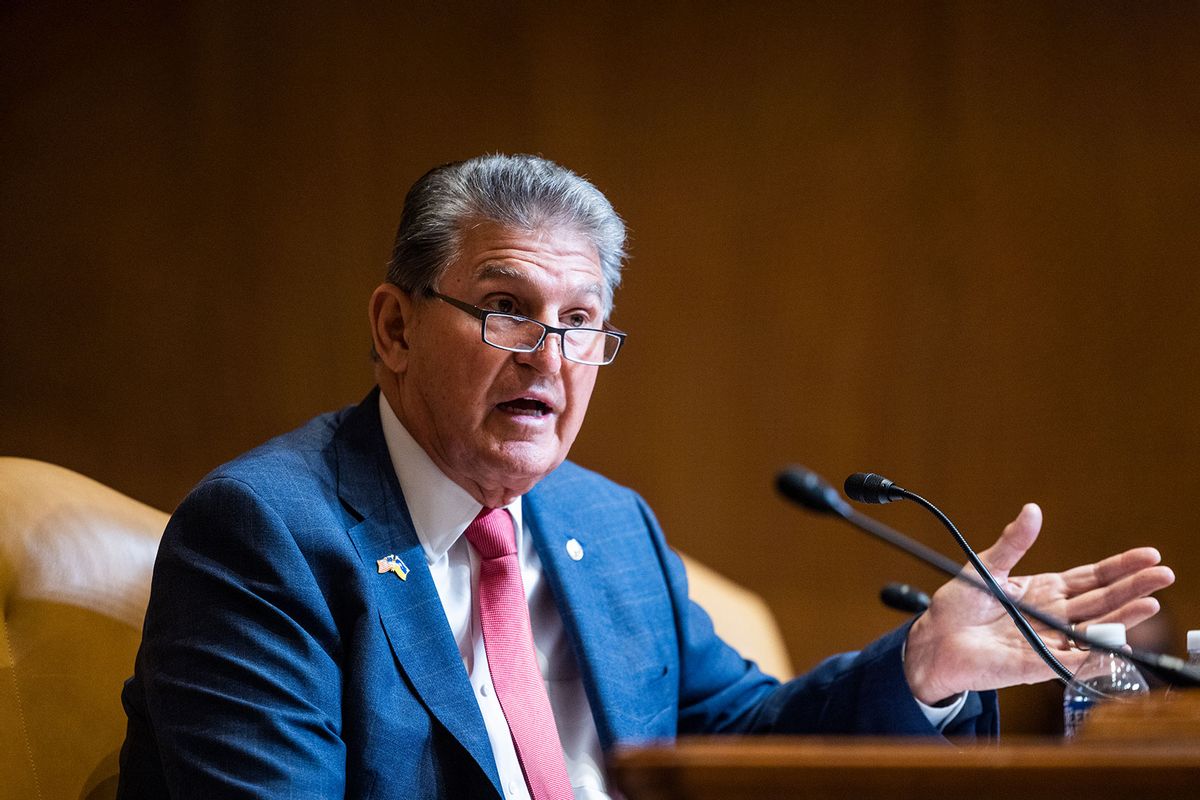Ro Khanna counters Joe Manchin’s pipeline bill by trying to force vote on $15 minimum wage

Rep. Ro Khanna, D-Calif., tells TYT he is pushing to attach a $15 federal minimum wage to the annual military spending bill Democrats are working to pass by the end of the year.
The move is a direct response to Sen. Joe Manchin, D-W.V., attempting the same tactic to pass his controversial legislation to fast-track permitting for energy projects.
Before the elections, Manchin failed to get support from either progressives or conservatives for his bill, which would make it easier for energy companies to steamroll community opposition. He is now facing an uphill battle, having said he’ll try to get it passed by attaching it to the annual National Defense Authorization Act (NDAA).
Khanna, a vocal opponent of Manchin’s bill, responded today, saying, “I am pushing for requiring a $15 wage as part of the NDAA.”
He said, “If the big oil industry wants to hold the NDAA hostage to weakening environmental protections, then progressives should demand a $15 wage as part of securing our votes. We can call the progressive deal the deal for the American people to finally get a raise.”
Manchin’s bill emerged from the side-deal he worked out over the summer with Sen. Maj. Leader Chuck Schumer, D-N.Y., in return for Manchin supporting the Inflation Reduction Act (IRA). Schumer attached it to a government funding bill, but Manchin ended up withdrawing his bill when the strength of the opposition became apparent.
And Khanna is not alone in renewing that opposition. As TYT reported last week, House Natural Resources Chair Rep. Raul Grijalva, D-Ariz., re-sent his September letter, co-signed by Khanna and 75 other Democratic Caucus members, to House leadership urging them “to exclude harmful permitting provisions from must-pass legislation this year.” The letter is part of a renewed push from lawmakers and environmental justice activists to block Manchin’s bill from being rushed through.
And Sen. Bernie Sanders, I-Vt., says he will work to defeat Manchin’s bill in his chamber, as well. Sanders told TYT earlier this month, “As you know, I am a very strong opponent of that piece of legislation. I think it’s an environmental disaster and I will do what I can to make sure it doesn’t become law.”
Manchin, who is up for re-election in 2024, would’ve needed Republican support to get his permitting bill passed in September along with the stop-gap measure to temporarily fund the government. However, Republicans balked after complaining that Manchin helped Schumer craft a deal to pass the IRA, and are now eyeing his seat as a potential Republican pick-up next term.
Manchin was promised fast-tracked permitting back in July in return for helping Schumer pass the IRA, a scaled-down version of Biden’s Build Back Better agenda. Opponents of the agreement – which did not include progressives – have referred to it as the “Dirty Deal.”
Manchin ultimately pulled his bill from the government funding legislation minutes before the Senate took a vote, amid GOP and progressive opposition, to avoid a government shutdown.
If Manchin’s permitting bill becomes law, it will require the president to keep a rolling list of at least 25 high-priority fossil-fuel and renewable-energy projects that would have their permitting processes fast-tracked. The bill would severely limit input from Black, Brown, Indigenous, and low-income communities, which have been historically and disproportionately impacted by harmful energy projects. It would also guarantee the completion of the Mountain Valley Pipeline, a pet project of Manchin that would carry natural gas more than 300 miles from West Virginia to Virginia.
While ranking members of the Senate and House Armed Services Committees reportedly have no interest in attaching Manchin’s bill to the NDAA, there’s a chance it could still happen. Or that elements of Manchin’s bill could appear in other legislation.
Sen. Shelly Moore Capito, R-W.V., who’s introduced her own Republican-backed permitting legislation, was quoted in The Hill saying, “It’s a heavy lift but we’re still exchanging ideas.”

